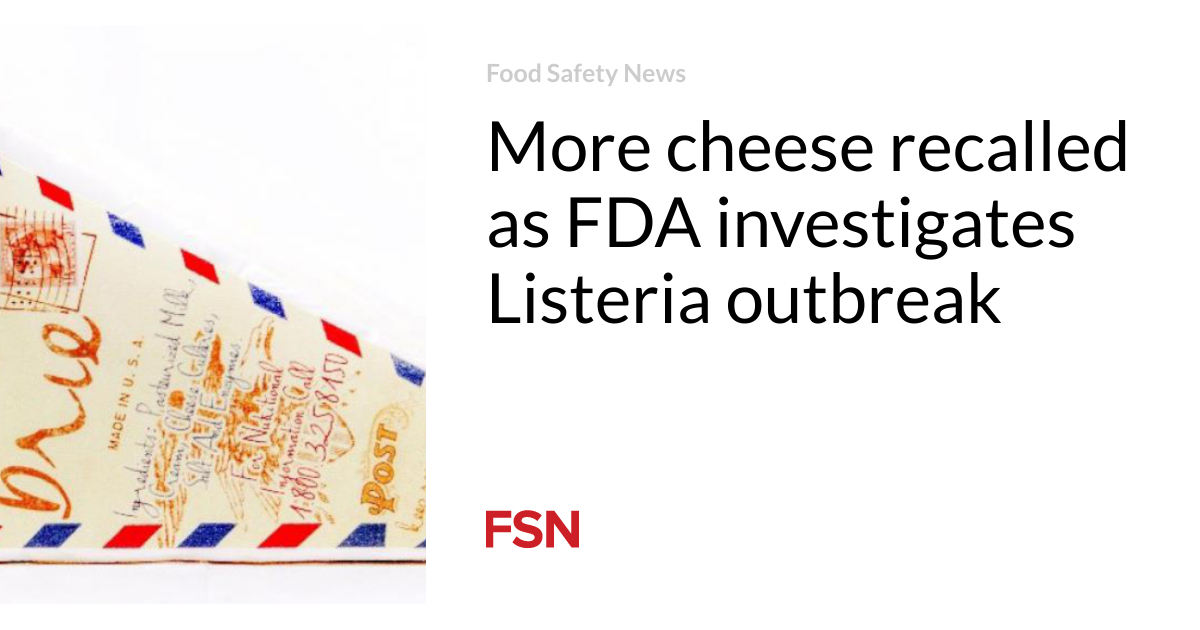
Swiss American is recalling St Louis Brie products after being alerted by the manufacturer Old Europe Cheese, Inc. because of possible Listeria monocytogenes contamination.
This recall comes after Old Europe Cheese, Inc. issued a recall of its Brie cheeses because of potential contamination with Listeria monocytogenes. The FDA is investigating an outbreak of infections caused by Listeria monocytogenes that are linked to Old Europe Cheeses. As of Sept. 30, there have been six confirmed patients, five of whom have had to be hospitalized.
Recalled products:
- St Louis Domestic Brie Wedge, 7 oz, UPC: 041563 263709, All dates up to and including 12/14/2022
- St Louis Domestic Cut Brie Wedge-6 lb RW, Variable weight, UPC: 041563 370018, All dates up to and including 12/14/2022
- St Louis Brie, Variable Weight, UPC: 21107100000, All dates up to and including 12/14/2022
- ST LOUIS BRIE PRE CUT WEDGES, Code Date: best by dates through 12/14/2022, Size: 16.00 OZ, UPC: 00021565000000
- ST LOUIS CW BRIE WHEEL, Code Date: best by dates through 12/14/2022, Size: 16.00 OZ, UPC: 00021171800000
Consumers who have purchased the recalled products are urged not to consume them and discard the product.
Consumers and retailers should follow FDA’s safe handling and cleaning advice and use extra vigilance in cleaning and sanitizing any surfaces and containers that may have come in contact with these products to reduce the risk of cross-contamination, including retailers who repackaged bulk recalled cheese. Listeria can survive in refrigerated temperatures and can easily spread to other foods and surfaces.
About Listeria infections
Food contaminated with Listeria monocytogenes may not look or smell spoiled but can still cause serious and sometimes life-threatening infections. Anyone who has developed symptoms of Listeria infection should seek medical treatment and tell their doctors about the possible Listeria exposure.
Also, anyone who has eaten any of the recalled products should monitor themselves for symptoms during the coming weeks because it can take up to 70 days after exposure to Listeria for symptoms of listeriosis to develop.
Symptoms of Listeria infection can include vomiting, nausea, persistent fever, muscle aches, severe headache, and neck stiffness. Specific laboratory tests are required to diagnose Listeria infections, which can mimic other illnesses.
Pregnant women, the elderly, young children, and people such as cancer patients who have weakened immune systems are particularly at risk of serious illnesses, life-threatening infections, and other complications. Although infected pregnant women may experience only mild, flu-like symptoms, their infections can lead to premature delivery, infection of the newborn, or even stillbirth.
(To sign up for a free subscription to Food Safety News, click here)
